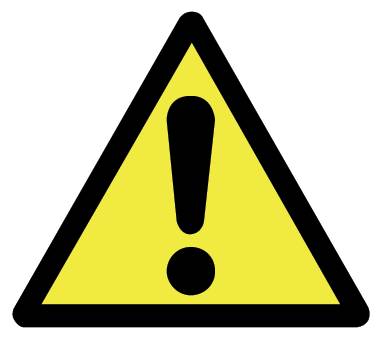Whenever any work is carried out on a vehicle, safety must always be the first consideration. In addition to the usual precautions which must be taken when working on any vehicle, air conditioning and heating systems present a range of additional hazards.
Note: Although this article contains comprehensive information on air conditioning service procedures, repairs and trouble-shooting, it is strongly recommended that anyone intending to carry out work on an air conditioning system for the first time attends a recognised automotive air conditioning training course, which includes some practical work. Any mistakes made can be costly, both in terms of safety and financially.
General safety
Working on your car can be dangerous. This article shows just some of the potential risks and hazards, with the aim of creating a safety-conscious attitude.
General hazards

Scalding
-
Don’t remove the radiator or expansion tank cap while the engine is hot.
-
Engine oil, automatic transmission fluid or power steering fluid may also be dangerously hot if the engine has recently been running.
Burning
-
Beware of burns from the exhaust system and from any part of the engine. Brake discs and drums can also be extremely hot immediately after use.
Crushing

-
When working under or near a raised vehicle, always supplement the jack with axle stands, or use drive-on ramps.
-
Never venture under a car which is only supported by a jack.
-
Take care if loosening or tightening high-torque nuts when the vehicle is on stands. Initial loosening and final tightening should be done with the wheels on the ground.
Fire
-
Fuel is highly flammable; fuel vapour is explosive.
-
Don’t let fuel spill onto a hot engine.
-
Do not smoke or allow naked lights (including pilot lights) anywhere near a vehicle being worked on. Also beware of creating sparks (electrically or by use of tools).
-
Fuel vapour is heavier than air, so don’t work on the fuel system with the vehicle over an inspection pit.
-
Another cause of fire is an electrical overload or short-circuit. Take care when repairing or modifying the vehicle wiring.
-
Keep a fire extinguisher handy, of a type suitable for use on fuel and electrical fires.


